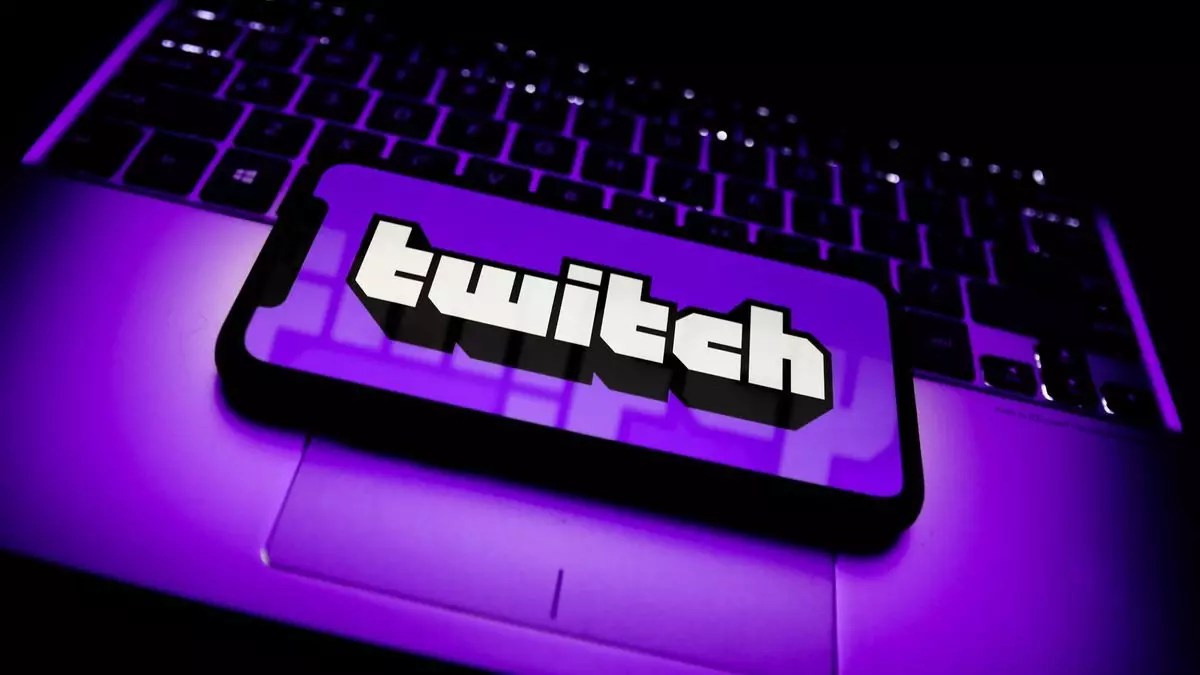In a rapidly evolving digital landscape, content moderation remains a crucial yet contentious topic. Twitch, the prominent streaming platform, has recently faced significant backlash over its policy adjustments regarding content classification, particularly surrounding discussions on “politics and sensitive social issues.” Initially, the platform mandated a content classification label for streams addressing such topics, but a mere week after implementation, Twitch amended its policy to exempt streamers sharing their “lived experiences.” This article delves into the motivations behind these changes and their implications for both creators and viewers.
The initial rule on content classification was catalyzed by a series of high-profile incidents on the platform, including widespread allegations of Islamophobia and antisemitism. This culminated in bans for prominent streamers like Zack “Asmongold” Hoyt due to racist comments aimed at Palestinians. In light of these occurrences, Twitch CEO Dan Clancy declared that there was “no place on Twitch for racism, hatred, or harassment,” signaling a clear commitment to fostering a safe environment. The original policy aimed to provide clarity on sensitive content, ostensibly to protect marginalized communities and ensure responsible communication.
However, the categorization of topics such as LGBTQ+ rights and reproductive health as “political” ignited anger among many streamers, particularly those from marginalized backgrounds, as it placed their very existence in a contentious space. This move was not simply seen as a precautionary measure but as a regulatory effort that threatened the authenticity of personal narratives, causing many to worry about the consequences of labeling their experiences as political discourse.
In response to the uproar, Twitch’s revision aimed to clarify that streamers discussing their lived experiences need not label their content, a crucial distinction that reflects an understanding of the community’s concerns. The company stated, “We want to make clear that you don’t need to label your stream if you’re talking about your lived experience,” emphasizing that a label is required only for streams where specific topics are the primary focus.
However, the changes have not entirely alleviated community tensions. While the revised guidelines removed explicit mentions of sensitive topics like reproductive and LGBTQ+ rights, they continue to rely on vague definitions such as “polarizing or inflammatory.” This ambiguity raises critical questions about who decides what constitutes polarization. Many streamers fear that merely advocating for their rights could subject them to harassment or unjust reporting, particularly from those with opposing views.
Twitch’s challenges illustrate the complexities of defining political discourse in a diverse community. The subjective nature of topics considered “personal experience” versus “political” leads to a slippery slope. For instance, a streamer discussing their rights regarding healthcare could be labeled political if viewed through the lens of a conservative audience, thus exposing them to potential backlash or punitive action.
Online platforms often grapple with balancing freedom of expression with the need for moderation. The challenge lies in creating guidelines that protect users while allowing for genuine discussions on varied experiences. The ongoing debate regarding Twitch’s content guidelines underscores the difficulty of addressing sensitive topics without alienating significant portions of the community.
Twitch is not alone in its struggle with content moderation; many platforms are wrestling with similar issues as they navigate sociopolitical dynamics in a digital world. The company’s responses to both internal and external pressures reveal the growing expectations of responsibility from tech giants regarding hate speech and discrimination.
However, critics argue that Twitch’s focus on classification rather than substantive action against hate speech might be a superficial fix rather than a comprehensive approach to addressing the root issues. As some creators have pointed out, labeling discussions as political can unintentionally frame human rights as politically charged, which detracts from the essential nature of those rights.
As Twitch continues to refine its approach to content classification, the need for a thoughtful and nuanced policy becomes ever more critical. Striking a balance between safeguarding user expression and protecting marginalized communities is no simple feat. The platform’s experience offers valuable lessons for the tech industry as a whole, emphasizing the need for clarity, transparency, and responsiveness in content moderation. Going forward, it remains to be seen whether Twitch can transform its good intentions into effective practices that genuinely foster inclusivity while allowing for authentic expressions of identity and experience.


Leave a Reply